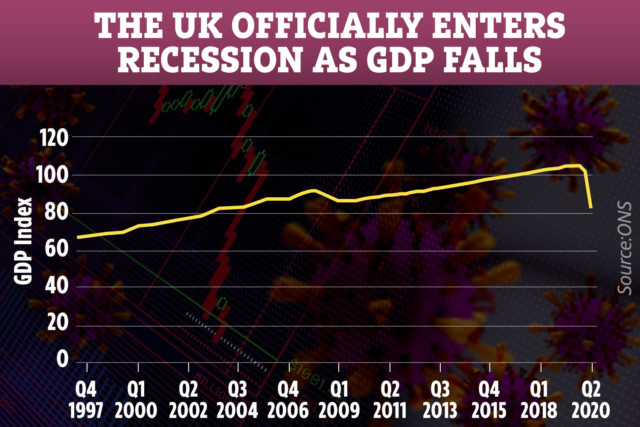THE UK has fallen into recession for the first time since the financial crisis 11 years ago.
The recession was made official this morning after the economy slumped by a record 20.4 per cent in just three months.
The Office For National Statistics – which measures the UK’s GDP – said: “It is clear that the UK is in the largest recession on record.”
Economists have been warning that we could be heading for a global recession due to coronavirus for some time.
Here we explain what the term means, how a recession is caused, and how it could impact your finances.
What is a recession?
A country is in recession when its economy shrinks over a sustained period of time, rather than growing normally.
It is calculated using something called Gross Domestic Product (GDP), which in the UK is the value of all the goods and services added up in pounds.

Generally speaking, if the GDP has fallen over two quarters (or six months), a country is said to be in recession.
Recessions are bad news, because they usually lead to unemployment and wage stagnation.
This in turn means the government gets less tax, which could mean cuts to services and benefits, or that rates go up.
What causes a country to go into a recession?
There are lots of different factors that can cause a country to tip into a recession.
The current crisis is a result of the coronavirus pandemic and subsequent lockdown measures.
The ONS said that there have been record falls in services, production and construction, which have been particularly prevalent in those industries that have been most exposed to government restrictions.








